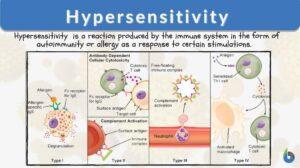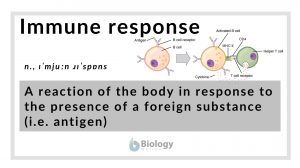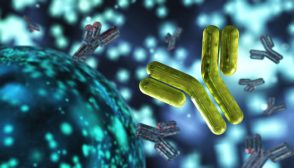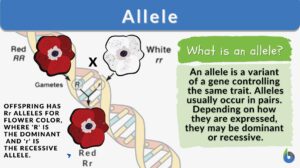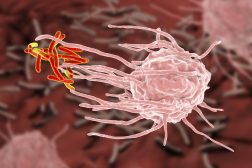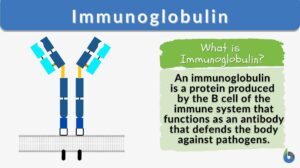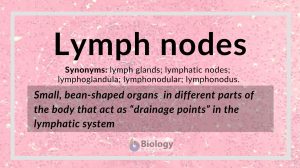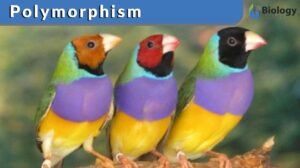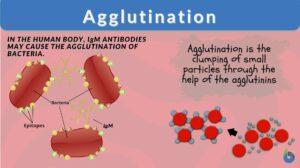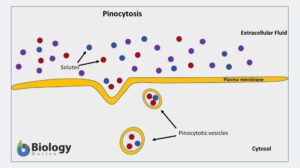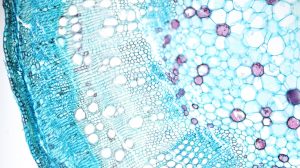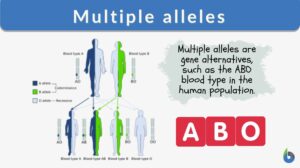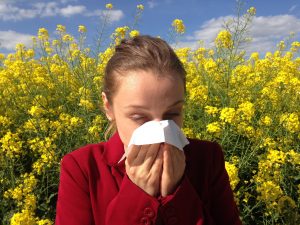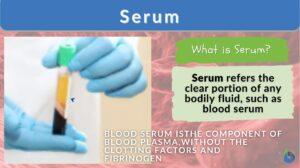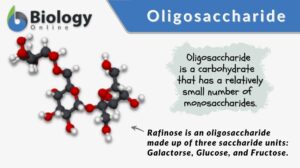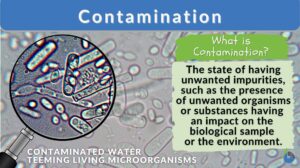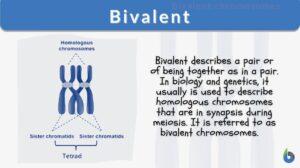Search Results for: antigens
Humoral immunity
Let’s get to know where one should place humoral immunity, the topic of today’s discussion!! By the end of the article,... Read More
Hypersensitivity
Hypersensitivity Definition Hypersensitivity is the exaggerated immune response to protect the human from foreign bodies... Read More
Immune response
Immune Response Definition An immune response is defined as the reaction of the body in response to the presence of a... Read More
Passive and Active Types of Immunity
The previous tutorial investigated the role of white blood cells in phagocytosis. White blood cells are also responsible... Read More
Fluid mosaic model
Fluid Mosaic Model Definition What is the fluid mosaic model? The fluid mosaic model is a three-dimensional representation... Read More
Major histocompatibility complex
Definition noun A cluster of genes on a particular chromosome that specify major histocompatibility... Read More
Biological Cell Defense
Organisms must find a means of defense against antigens such a viruses described on the previous tutorial. If this was not... Read More
Codominance
Codominance Definition Codominance is a form of inheritance wherein the alleles of a gene pair in a heterozygote are fully... Read More
Erythrocyte
Erythrocyte Definition Erythrocytes (red blood cells or RBCs) are the myeloid series of specialized cells that play an... Read More
Immunoglobulin
Immunoglobulin Definition An immunoglobulin is a globulin molecule produced by the immune cells, for the body's defense... Read More
Lymph nodes
Lymph nodes definition Lymph nodes are small, bean-shaped organs located in different parts of the body and act as... Read More
Inoculation
Inoculation Definition In Immunology, inoculation is defined as the process of introducing an antigenic substance or... Read More
Polymorphism
Polymorphism Definition The occurrence of two or more different forms or morphs in the population of a species is referred... Read More
Bacteriolysin
Definition noun, plural: bacteriolysins (1) A specific antibody that combines with bacterial cells (antigens) and, in the... Read More
Agglutination
Agglutination Definition What does agglutination mean? It generally refers to the process of sticking together or the... Read More
Abo blood group
Abo blood group (Science: haematology) The major human blood type system which describes the oligosaccharide glycoprotein... Read More
Using Antibodies : A Laboratory Manual : Portable Protocol NO. I
Using Antibodies : A Laboratory Manual : Portable Protocol NO. I ... Read More
Pinocytosis
Pinocytosis Definition What is pinocytosis? Pinocytosis is the ingestion of extracellular fluids, i.e. the fluid... Read More
Agglutinin
Definition noun, plural: agglutinins Any substance, usually of biological origin, that causes agglutination or clumping... Read More
Langerhans cell
Definition noun, plural: Langerhans cells An antigen-presenting (dendritic) cell characterized by the presence of Birbeck... Read More
Nuclear body
Definition noun plural: nuclear bodies nu·cle·ar bod‧y, ˈnjuː.kli.ər ˈbɒdi Any of the prominent non-membraned,... Read More
Cell Biology
The cell is defined as the fundamental, functional unit of life. Some organisms are comprised of only one cell whereas... Read More
Multiple alleles
Alleles are the pairs of genes occupying a specific spot called locus on a chromosome. Typically, there are only two alleles... Read More
Pathobiology of allergy and its most severe form, anaphylaxis
When allergy season looms, some people with serious hypersensitivity to allergens tend to be apprehensive of what may come.... Read More
Alimentary canal
Definition of Alimentary canal What is the alimentary canal? The alimentary canal is a muscular hollow continuous tubular... Read More
Passive agglutination
Definition noun An agglutination reaction of inert particles coated with soluble antigen through an antiserum specific for... Read More
Oligosaccharide
Carbohydrates are organic compounds consisting of carbon, hydrogen, and oxygen, usually in the ratio of 1:2:1. They are one... Read More
Contamination
Contamination Definition Contamination, sometimes interchanged with pollution, is the existence of live things or... Read More
Lymph glands
Lymph gland --> lymph node (Science: anatomy) small bean-shaped organ made up of a loose meshwork of reticular tissue in... Read More
Histiocyte
Definition noun, plural: histiocytes A reticular connective tissue macrophage or a dendritic cell, derived from the bone... Read More
T-helper cell
Definition noun, plural: T-helper cells A type of T lymphocyte that assists by activating antigen-presenting leukocytes,... Read More
Cytotoxic T cell
Definition noun, plural: cytotoxic T cells A T cell responsible for inducing death to target cells (e.g. infected somatic... Read More
Reverse passive agglutination
Definition noun A type of agglutination reaction in which known antibody is bound to a carrier particle instead of the... Read More


